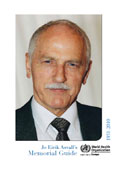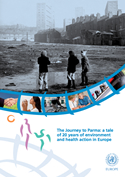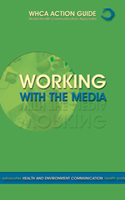When a popular UK newspaper announced a miracle cure for a life threatening condition among young boys, parents of affected children were overjoyed. The doctor conducting the research was obliged to write to families to warn them that the report was inaccurate, dashing their hopes.
This was one of the most poignant cases presented to the Special Parliamentary Hearings on Clive Soley’s Freedom and Responsibility of the Press Bill in 1992 which helped give rise to MediaWise. It demonstrated the importance of accuracy in health reporting and highlighted the media’s vital role in raising public awareness about health issues.
Without journalists the public would be less well-informed about health hazards. However, public confidence in health reporting is entirely dependent on its reliability. The pressures of media production can lead to errors that could cause alarm or undermine healthy lifestyles. In this field above all others, journalists need to ensure that they get their facts right.
Over the years MediaWise has worked with the World Health Organisation (WHO), mental health groups, Befrienders International and the National Union of Journalists UK & Ireland (NUJ) on a variety of issues connected with reporting of health matters, producing guidelines for media professionals, and the devising training materials for health communicators.
 Jo Eirik Asvall’s Memorial Guide 1931-2010 (2010)
Jo Eirik Asvall’s Memorial Guide 1931-2010 (2010)
Working with World Health Communication Associates (WHCA), MediaWise contributed to the writing and editing of this memorial guide, as well as arranging and transcribing interviews and providing admin support. Jo Asvall was the WHO Regional Director for Europe from 1985-2000 and this biographical book, published by the WHO Regional Office for Europe, was launched at the 60th Regional Committee for Europe in Moscow.
 The Journey to Parma: a tale of 20 years of environment and health action in Europe (2009)
The Journey to Parma: a tale of 20 years of environment and health action in Europe (2009)
MediaWise was part of the writing, editing and admin team for this report, working with World Health Communication Associates (WHCA). It tells the story of the WHO European environment and health process, which has been marked by a series of ministerial conferences, from Frankfurt in 1989 to Parma in 2010, via Helsinki (1994), London (1999) and Budapest (2004).
 Working with the media (2005)
Working with the media (2005)
Written by MediaWise for World Health Communication Associates (WHCA), the European Public Health Alliance (EPHA) and the EPHA Environment Network. Working with the Media is a handbook designed to help health communicators use the media more effectively and develop new ways of influencing public health policy and practice. Funded by the European Union, it has appeared in four languages and is in use throughout Europe.
From the margins to the mainstream: Putting public health in the spotlight (2003)
Devised and researched by Mike Jempson, Kate Woodhouse, Bill Norris and Lynne Walsh. A resource package for health communicators, published by the Regional Office for Europe of the World Health Organisation.
Guidelines for reporting on health issues
Devised by PressWise, at the request of World Health Organisation (WHO) in Europe, in consultation with health communicators and correspondents from 51 European countries. The guidelines were endorsed by the International Federation of Journalists (IFJ), and adopted by the WHO European Health Communications Network (EHCN).
Spot On! Training on health communications (2001)
A handbook on health communication for media professionals, including training-of-trainers material, produced for the WHO European Health Communication Network in 2001. Spot On! is now out of print but material from it appears in Working with the media.
Further resources on the media and health are available here.
